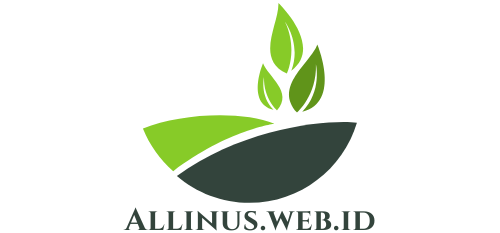Welcome to our blog, where we delve into the fascinating world of Agri-Tech Solutions. In this article, we will explore how these innovative technologies are revolutionizing the way we approach agriculture. From enhancing productivity to optimizing resource utilization, Agri-Tech Solutions have the potential to transform the way we produce food, making it more sustainable, efficient, and environmentally friendly. Join us as we uncover the remarkable benefits and advancements in Agri-Tech Solutions that are shaping the future of agriculture.
Increasing Crop Yields with Precision Farming
Precision farming, also known as satellite farming or site-specific crop management, is one of the key Agri-Tech Solutions that has gained significant traction in recent years. This innovative approach utilizes advanced technologies such as GPS, remote sensing, and data analytics to optimize crop production.
By collecting data on soil fertility, moisture levels, and crop health, precision farming enables farmers to make informed decisions regarding planting, fertilization, irrigation, and pest control. This targeted approach eliminates guesswork and allows farmers to allocate resources precisely where they are needed, resulting in higher crop yields and reduced input costs.
For example, by using satellite imagery and drone technology, farmers can identify areas of the field with varying nutrient levels and apply fertilizers only where necessary. This not only reduces the overall amount of fertilizer used but also minimizes the risk of nutrient runoff into water bodies, mitigating environmental pollution.
Advantages of Precision Farming:
1. Increased crop yields: By optimizing resource allocation and addressing specific crop needs, precision farming can significantly enhance productivity.
2. Cost savings: By minimizing input costs such as fertilizers, water, and pesticides, farmers can achieve higher profitability.
3. Environmental sustainability: Precision farming techniques help reduce the environmental impact of agriculture by minimizing chemical usage and conserving water resources.
4. Data-driven decision-making: By leveraging technology and data analytics, farmers can make more informed decisions, leading to improved efficiency and better outcomes.
5. Improved resource utilization: Precision farming maximizes the use of available resources, ensuring that each input is utilized optimally.
As precision farming continues to evolve, new technologies like machine learning and artificial intelligence are being integrated, further enhancing its capabilities. These advancements are poised to revolutionize agriculture by providing farmers with unparalleled insights and precision in their farming practices.
Optimizing Water Usage with Smart Irrigation Systems
Water scarcity is a pressing concern in agriculture, making efficient water usage a top priority for farmers. Agri-Tech Solutions have introduced smart irrigation systems that offer precise control over water application, leading to significant water savings and improved crop health.
Smart irrigation systems utilize sensors, weather data, and advanced algorithms to determine the exact amount of water required by crops at any given time. By monitoring factors like soil moisture, temperature, and evapotranspiration rates, these systems can deliver water directly to the plant’s root zone, minimizing wastage through evaporation or runoff.
Furthermore, these systems can be remotely controlled and programmed, allowing farmers to automate irrigation schedules and adjust water delivery based on real-time conditions. This not only saves time and labor but also ensures that crops receive the right amount of water when they need it most.
Advantages of Smart Irrigation Systems:
1. Water conservation: By delivering water precisely where and when it is needed, smart irrigation systems minimize water wastage and help conserve this valuable resource.
2. Improved crop health: Proper water management promotes healthier root development, reduces the risk of diseases like root rot, and ensures optimal nutrient uptake by plants.
3. Energy savings: Smart irrigation systems can be integrated with energy-efficient pumps and controllers, reducing electricity consumption and lowering operational costs.
4. Enhanced productivity: By providing crops with ideal moisture levels, these systems contribute to increased yields and improved overall farm productivity.
5. Environmental sustainability: Efficient water usage in agriculture helps protect natural water bodies, reduces the strain on local water sources, and preserves ecosystems.
Smart irrigation systems are adaptable to various farming methods and can be customized to suit different crop types and soil conditions. As water scarcity becomes an increasingly critical issue, the adoption of these innovative systems can play a pivotal role in ensuring a sustainable and water-efficient future for agriculture.
Streamlining Crop Monitoring with Remote Sensing
Remote sensing technology has revolutionized crop monitoring, offering farmers valuable insights into the health and growth of their crops. Through the use of satellites, drones, and advanced imaging techniques, Agri-Tech Solutions have made it possible to collect detailed information about crop conditions over large areas.
Remote sensing enables farmers to assess various crop parameters such as vegetation vigor, canopy density, and stress levels. By analyzing this data, farmers can identify areas of concern, detect early signs of pests or diseases, and take timely corrective measures.
One of the key advantages of remote sensing is its ability to provide real-time and accurate information about crop health. This allows farmers to make informed decisions regarding irrigation, fertilization, and pest control, optimizing resource allocation and minimizing crop losses.
Advantages of Remote Sensing:
1. Early detection of issues: Remote sensing enables farmers to identify crop issues at an early stage, allowing for prompt intervention and minimizing potential damage.
2. Precision in resource management: By providing detailed information about crop health, remote sensing helps farmers allocate resources like water, fertilizers, and pesticides precisely where they are needed, reducing wastage.
3. Increased efficiency: Remote sensing eliminates the need for manual scouting, saving time and labor costs. Farmers can monitor large areas in a short period, allowing for efficient decision-making.
4. Enhanced yield prediction: By analyzing historical data and current crop conditions, remote sensing can help predict yields, aiding in better crop planning and market forecasting.
5. Sustainable farming practices: Remote sensing facilitates the adoption of sustainable farming practices by enabling targeted interventions, reducing chemical usage, and promoting overall environmental stewardship.
As remote sensing technologies continue to advance, the integration of artificial intelligence and machine learning algorithms will further enhance the capabilities of crop monitoring. This ongoing development promises continuous improvements in the accuracy and efficiency of remote sensing, benefitting farmers and contributing to the overall growth and sustainability of agriculture.
Improving Crop Protection with AI-Powered Pest Management
Pest management plays a crucial role in crop protection, and Agri-Tech Solutions are leveraging artificial intelligence (AI) to revolutionize this aspect of agriculture. AI-powered pest management systems utilize advanced algorithms, machine learning, and image recognition to identify and control pests effectively.
These systems can analyze vast amounts of data, including images of crops and pests, weather conditions, and historical pest patterns. By identifying specific pest species and their population dynamics, AI-powered pest management enables farmers to implement targeted and timely interventions.
With the help of AI, farmers can monitor pest populations, predict potential outbreaks, and take preventive measures to minimize crop damage. This proactive approach reduces the reliance on broad-spectrum pesticides and promotes the use of environmentally friendly alternatives.
Advantages of AI-Powered Pest Management:
1. Targeted pest control: AI algorithms can accurately identify pest species, allowing farmers to employ specific control methods tailored to the particular pests affecting their crops.
2. Reduced chemical usage: By precisely targeting pest hotspots and using pest-specific control measures, AI-powered systems minimize the need for excessive pesticide application, reducing environmental impact.
3. Early detection and intervention: AI algorithms can detect early signs of pest infestations, enabling farmers to take immediate action and prevent significant crop losses.
4. Enhanced decision-making: AI-powered systems provide farmers with real-time insights and recommendations, empowering them to make informed decisions regarding pest management strategies.
5. Cost-effective solutions: By optimizing pest control measures and reducing the reliance on expensive chemical pesticides, AI-powered pest management can help farmers save on input costs.
As AI continues to evolve, the accuracy and effectiveness of pest management systems will improve further. This technology holds immense potential in providing farmers with sustainable and efficient solutions for crop protection, ensuring healthier crops, and higher yields.
Enabling Data-Driven Decision Making with Farm Management Software
Farm management software is a powerful Agri-Tech Solution that empowers farmers with data-driven insights and facilitates efficient farm operations. These software platforms integrate various functionalities, such as crop planning, inventory management, financial tracking, and equipment monitoring, into a single, user-friendly interface.
By centralizing data from different aspects of farming, farm management software enables farmers to make informed decisions based on real-time information. They can track crop performance, monitor resource utilization, and analyze financial data to optimize productivity and profitability.
Moreover, these software solutions often incorporate data analytics and reporting tools, allowing farmers to generate customized reports, perform trend analysis, and gain valuable insights into their farming operations. This data-driven approach enhances efficiency, streamlines workflows, and enables proactive decision-making.
Advantages of Farm Management Software:
1. Streamlined operations: Farm management software simplifies administrative tasks, automates processes, and improves overall farm organization and efficiency.
2. Improved resource management: By tracking resource usage, including labor, equipment, and inputs, farmers can identify areas for optimization and cost reduction.
3. Enhanced productivity: Data-driven insights enable farmers to fine-tune their practices, allocate resources effectively, and implement strategies to maximize crop yields.
4. Financial visibility: Farm management software provides accurate financial tracking, budgeting, and forecasting tools, helping farmers make informed financial decisions and improve profitability.
5. Scalability and growth: With the ability to handle large volumes of data, farm management software supports scalability, allowing farmers to expand their operations while maintaining control and oversight.
Farm management software is evolving rapidly, integrating new technologies like cloud computing, Internet of Things (IoT), and mobile applications. This continual advancement offers farmers increasingly sophisticated tools to manage their farms efficiently and make data-driven decisions for long-term success.
In conclusion, Agri-Tech Solutions are transforming the agricultural industry, offering innovative ways to enhance productivity, optimize resource utilization, and promote sustainability. Precision farming enables farmers to achieve higher crop yields by leveraging data and technology to make informed decisions about planting, fertilization, and irrigation. Smart irrigation systems help conserve water by delivering it precisely where and when it is needed, while remote sensing technology provides real-time insights into crop health and allows for targeted interventions. AI-powered pest management systems enable farmers to control pests more effectively, reducing chemical usage and promoting environmental stewardship. Additionally, farm management software empowers farmers with data-driven insights and streamlines farm operations. As these Agri-Tech Solutions continue to advance, the future of agriculture looks promising, with increased efficiency, improved sustainability, and enhanced profitability for farmers worldwide.

